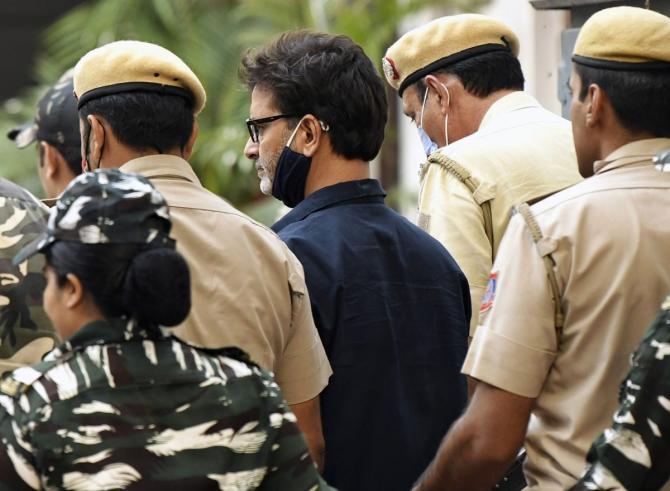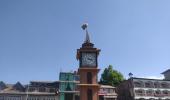A judicial tribunal of the Delhi high court has confirmed the Centre's ban on separatist group Muslim Conference Jammu and Kashmir (Bhat faction) and four factions of the Jammu and Kashmir People's League for threatening India's integrity by promoting, aiding and abetting the secession of Jammu and Kashmir through terrorism.

Two separate orders -- one for the Muslim Conference Jammu and Kashmir (Bhat faction) and another for the four factions of the JKPL -- upholding the ban imposed under the Unlawful Activities (Prevention) Act was issued by the tribunal consisting of Justice Neena Bansal Krishna, a Delhi High Court judge.
The Muslim Conference Jammu and Kashmir (MCJK-Bhat) was declared a banned association by the ministry of home affairs through a notification on February 28.
The tribunal was constituted on March 18 for the purpose of adjudicating whether or not there was sufficient cause for declaring the MCJK-Bhat an unlawful association.
"And, whereas, the said tribunal, in exercise of the powers conferred by sub-section (3) of section 4 of the Unlawful Activities (Prevention) Act, 1967, passed an order on August 23, 2024, confirming the declaration made in the said notification," the home ministry said through a notification issued on Tuesday.
While imposing the ban, the ministry had said the MCJK-Bhat had linkages with banned terror outfits and supported terrorism in Jammu and Kashmir, its members were indulging in generating feelings of hatred and disaffection against India to separate Jammu and Kashmir from the Union of India, and its leaders and members were involved in raising funds through various sources, including from Pakistan and its proxy organisations, for perpetrating unlawful activities, including supporting terror activities and sustained stone-pelting on security forces.
The MHA had also said the MCJK-Bhat and its members, by their activities, showed sheer disrespect towards the country's constitutional authority and constitutional set up, gave a clarion call to boycott polls on multiple occasions, attempted to subvert the will of people and the democratic process in Jammu and Kashmir, and were involved in promoting, aiding and abetting the secession of Jammu and Kashmir from India through anti-national and subversive activities.
Another order was also issued by the tribunal confirming the ban imposed on four factions of the Jammu and Kashmir Peoples League -- JKPL (Mukhtar Ahmed Waza), JKPL (Bashir Ahmad Tota), JKPL (Ghulam Mohammad Khan alias Sopori), which is also known as Jammu and Kashmir People's Political League, and JKPL (Aziz Sheikh) led by Yaqoob Sheikh -- as unlawful associations.
While declaring the four factions of the JKPL outlawed under the UAPA on March 15, the MHA had said the groups were involved in supporting terror activities and spreading anti-India propaganda for fuelling secessionism in Jammu and Kashmir, and their members were involved in mobilising violent protests in various parts of Jammu and Kashmir for perpetrating unlawful activities.
The members of the groups were also involved in stone-pelting on security forces, have constantly asked the people of Jammu and Kashmir to refrain from taking part in elections and thereby, targeted and hampered the very basic constitutionally-recognised fundamentals of Indian democracy, the ministry had said.
The tribunal, in its August 29 order, said: "From the elaborate material and evidence placed on record in these proceedings, this tribunal finds that there is ample justification to uphold the ban on the four factions of the JKPL and uphold the declaration of the four factions of the JKPL, namely JKPL (Mukhtar Ahmed Waza), JKPL (Bashir Ahmed Tota), JKPL (Ghulam Mohammed Khan @ Sopori) also known as Jammu and Kashmir People's Political League, and JKPL (Aziz Sheikh) led by Yaqoob Sheikh as being 'unlawful associations' under the UAPA."










